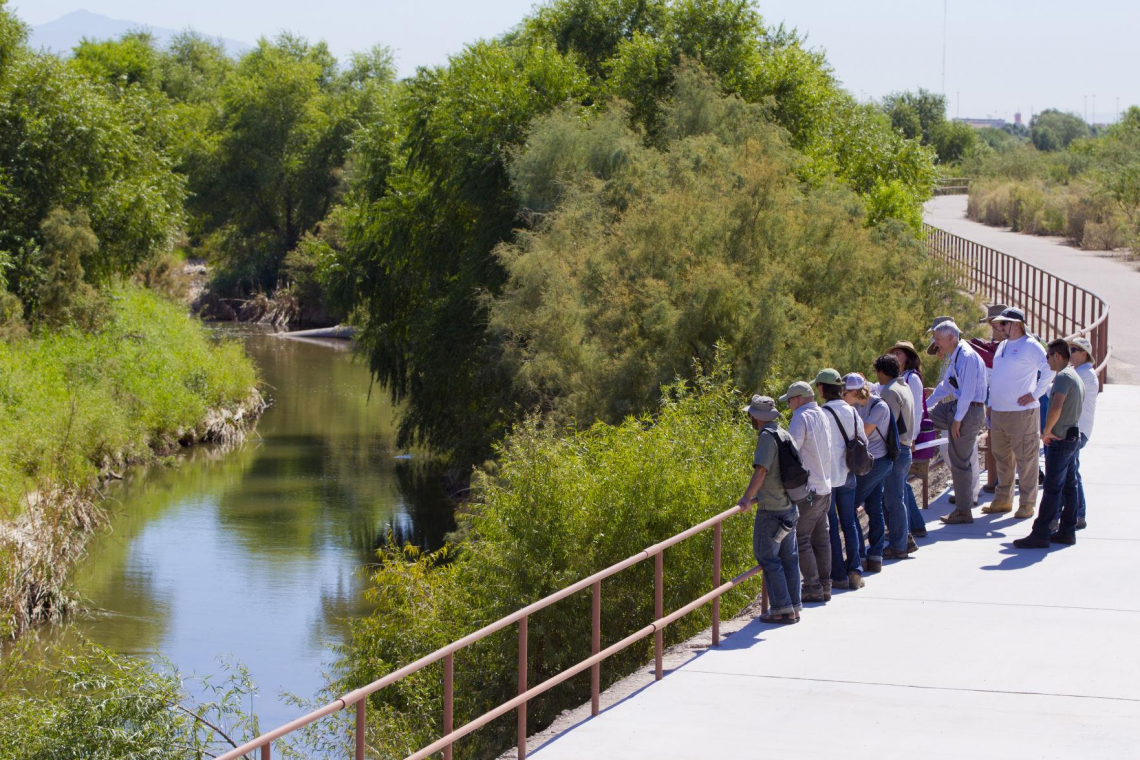On May 19, 2021, the Arizona Institutes for Resilience presented the third episode of the Water Solutions for Our Warmer World series, “The Realities of Adaptation in the Water Sector,” moderated by Andrea Gerlak from the Udall Center for Studies in Public Policy and School of Geography, Development & Environment. This episode featured a diverse array of panelists who offered their perspectives on how adaptations are unfolding in the water sector.
As climate change impacts are accelerating, keynote speaker Lester Snow, former Secretary of the California Natural Resources Agency, discussed how the management of natural resources, specifically water, is divided and slow. Adaptation solutions must be given the same creativity and attention as mitigation solutions, especially in dry and arid environments like the U.S. Southwest.
“While we’ve seen many changes, we’re still managing through the lens of authorizing legislation and institutions created in the ‘50s, ‘60s, and ‘70s when we didn’t talk about rapid climate change,” Snow said. “That has to change as we move forward.”
The panelists for this episode – Governor Steven Roe Lewis, Dr. Jeff Arnold, Colby Pellegrino, and Emily Wasley – responded to the keynote and audience questions with their thoughts on adaptation and solutions for water resources. In order to achieve the consolidation of water management systems, there are a number of solutions that would streamline this process including but not limited to incentives for comprehensible regional strategies, business coalitions, easily accessible databases of environmental impacts combined with greater attention and investment in adaptive management.
“The constant movement of funding sources, even for the very astute water agencies, are hard to keep track of,” Pellegrino said. “I think that we do a disservice to smaller water agencies because they don’t have the staff to keep up to date on everything that’s happening nationally and through federal programs that could really benefit them. I think durability is really important in terms of institutions and policies that are necessary.”
This episode highlights how water negotiations moving forward must be durable and inclusive in order to strengthen strategies to address the challenges ahead. Additionally, adaptive management strategies must shift from a scientific lens to a strong foundation in governance and policy in order to create water equity and conservation.
“Tribal Nations until recent times have not been part of the solution or the discussion,” Governor Lewis said. “It’s important to have all partners at the table. Tribal Nations have a depth of knowledge about the natural world and that can be employed very effectively to ensure a very holistic approach to climate change and adaptation is realized.”


